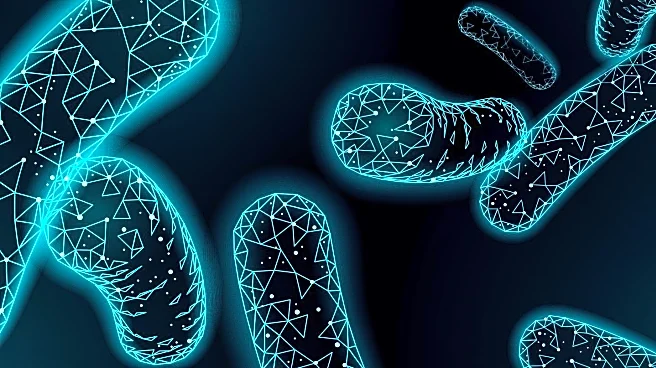What is the story about?
What's Happening?
An international consortium of researchers has discovered a microbial signature associated with colorectal cancer, potentially leading to the development of non-invasive diagnostic tests. The study, led by the University of Trento and published in Nature Medicine, analyzed 3,741 stool samples from 18 global cohorts using metagenomics and machine learning techniques. The findings reveal a set of gut bacteria that correlate strongly with colorectal cancer, offering a promising alternative to invasive screening methods like colonoscopies.
Why It's Important?
Colorectal cancer is a major health concern, ranking third in incidence and second in mortality worldwide. Early detection is crucial for improving patient outcomes, but current screening methods are often invasive and costly. The identification of a microbial signature offers a potential breakthrough in cancer diagnostics, enabling simpler, non-invasive tests that could increase screening rates and reduce healthcare costs. This advancement could significantly impact public health by facilitating earlier diagnosis and treatment.
What's Next?
Further clinical trials are needed to validate the predictive value of the microbial signature in population-wide screening. Researchers aim to explore the biological mechanisms behind the microbial changes and their role in cancer progression. The study's findings may also inform the development of microbiome-modulating therapies, complementing existing treatments and improving patient outcomes.
Beyond the Headlines
The research highlights the growing importance of the gut microbiome in cancer development and treatment response. Understanding microbial dynamics could lead to novel therapeutic targets and personalized medicine approaches. The study's integrative approach exemplifies the potential of combining computational science with biological research to revolutionize diagnostics.















